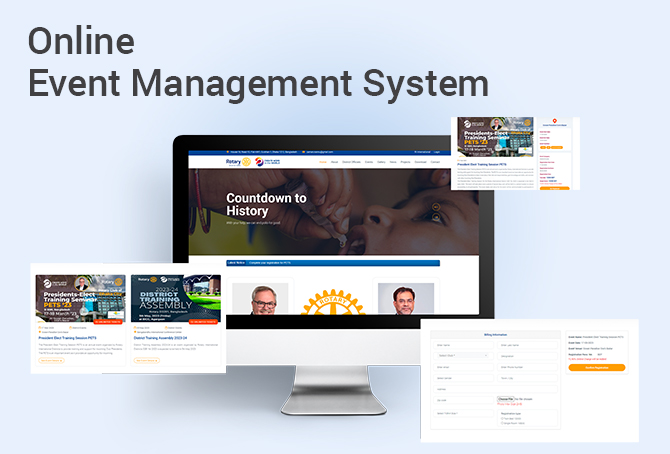



Begin The Search For Your Perfect Domain Name...
We always prefer quantity over quality and ensure the best quality service to our respected customers. Whether it is a massive project or a small project it does not matter at all. We deliver similar quality services that can put a smile on your face.
Also, we envision making our clients happy by delivering fabulous works that can help them to enhance their business and gain success in their field. We believe the work that helps our client also helps us to build a quality bond between us. And that makes us happy as well as our clients.
Onirban Bangladesh Technologies is one of the country's leading IT solutions brands dedicatedly working for local and foreign clients. In the past few years, the company has achieved tremendous success in major projects, all thanks to the dedicated employees and personales in charge.
The motto of the company is to give their best regardless of how much profit or reputation the agency is earning from the work. To us, satisfying clients in need and gaining their trust of them is the biggest achievement. And for this reason, we’re able to keep the name of the company higher among many other agencies and farms.


Designing and developing any web application for business is just a matter of time. We can also do web development for your business using any technology keeping in mind your needs. Let's start with our experience together.

The use of technology in any business as well as technology business is incomparable. Technology software is needed to make business operations easier so we want to be your business technology, support partner.

Custom email is a must have, for any Affiliate, promoting any program. Be it business or personal. Domain and super server required to run custom email. We provide lifetime support with custom email servers.

It is difficult to imagine anything in the present age without social media. Solid social media management is needed to take a brand to a unique level through social media. We specialize in taking over your social media handles.

The company from which you bought the domain is closed, surely you will not buy the domain from such a company? Again, if you take a hosting server where your website does not load, then what will happen?

We deliver web and mobile applications just as clients demand but we are able to develop even better websites and mobile applications. A web or mobile application is not just a web or mobile application, it is a sales machine

Digital marketing is easy for ordinary users on those platforms where digital marketing is possible, especially in the case of media buying because they can easily generate revenue. The reality is that digital marketing in this way does not yield

Now is the time for all offline businesses to move online. There is no greater and easier way to deliver factory products directly to the customer. We take on the responsibility of his offline organization with the idea of the client's business and carry out
Trusted By The World's Best Organizations

Creating an e-commerce website is very easy for Onirban Bangladesh Technologies. If it is a custom e-commerce management system, then many things cannot be left out if you want! Creating a custom e-commerce platform for Daarkak is a big find for both organizations. This system has pos in it. It will...

In order to give the honor of scout life, Bangladesh Scout took an online test called PS Exam. Bringing thousands of candidates online to take the exam is not an easy task. Bangladesh Scout has been able to complete the work very easily in collaboration with Onirban Bangladesh Technologies! More then...

Bangladesh Scout National Disaster Management Camp was organized with the help of the technology of Onirban Bangladesh Technologies . More then 4000 scouts, rovers & leader use this website to complete camp registration. Onirban Bangladesh technologies provided online registration...

Onirban Bangladesh Technologies was approached by Rotary International District 3281 to design and develop a website that would meet their needs. Onirban Bangladesh Technologies created a custom website that featured a dynamic landing page, district officials' information, district...

Onirban Bangladesh Technologies was contracted to develop a web and mobile-based system to manage all aspects of the 3RD NATIONAL DISASTER MANAGEMENT SCOUT CAMP 2022. The development team included project managers, web developers, mobile app developers, and...

Onirban Bangladesh Technologies (OBT) was chosen to provide a comprehensive solution that addressed all of the challenges faced by the organizers of the CBSC. OBT provided an integrated system that included participant registration, ID card printing, certificate printing, and...

Onirban Bangladesh Technologies (OBT) was the official technology partner for the 1st Indo Bangla Friendship Camp and provided several services to ensure the success of the event. OBT provided a streamlined registration system that enabled participants to register online before the event.

Onirban Bangladesh Technologies (OBT) was chosen to provide a comprehensive video conferencing solution for the 3rd Bangladesh Scouts Power Camp. OBT provided an integrated system that included video conferencing software, hardware installation, and software configuration.

Onirban Bangladesh Technologies (OBT) was chosen to provide a comprehensive solution that included a registration system, ID card printing, access control, website, and networking service for the 8th National Cub Camporee. OBT provided an integrated system that included software, hardware...

Onirban Bangladesh Technologies (OBT) was the official technology partner for the event and provided several services to ensure the smooth running of the event. OBT provided an online registration portal, which streamlined the registration process and provided all the necessary information regarding the event...

Onirban Bangladesh Technologies (OBT) was chosen to provide the video conferencing service for JOTI from 2014 to 2017. OBT is a technology company that specializes in software development, IT consultancy, and digital marketing. OBT provided a cloud-based video conferencing platform that was specifically tailored to the needs of...

Onirban Bangladesh Technologies (OBT) was chosen to provide a comprehensive networking solution for the Bangladesh Scouts National Training Center Camp. OBT provided an integrated system that included network design, hardware installation, and software configuration. The system provided by OBT was designed to be scalable, flexible, and able to...












IT Management Solutions for your Business, Explore Our Plans